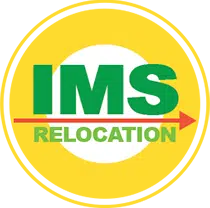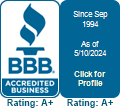Moving While Pregnant: Best Practices
Moving while pregnant? You’re not alone. According to a recent study published in the National Library of Medicine, 41 percent of mothers move at least once between conception and one year postpartum. Plus, the number of moves can range anywhere from zero to eight.
While your doctor may not recommend inactivity during pregnancy, lifting heavy objects during a move is also ill-advised. As such, it’s important to ensure you follow certain best practices when moving while pregnant to protect your health (and the health of your baby).
Establish a Timeline
First off, pick when you want to move. The third trimester of pregnancy is notoriously more difficult than the first two, which makes moving during this time difficult. Try to move in the first or second trimester, if possible, but if you can’t and have to move during the third trimester, you’ll want to be especially aware of reducing stress and labor (no pun intended). The due date is important here, as you’ll create your moving timeline around it.
Determine Needs Before the Move
Once you’ve established a timeline, then you can assess what needs to be moved before the baby arrives. As Mayflower recommends, “go room by room and decide what is essential and what can stay behind, beginning with your room, any shared living spaces and the nursery, if it has already taken shape.”
Depending on whether you have another child or have already purchased furniture, it will dictate how much you need to move. Changing tables, cribs, rocking chairs and even smaller items like blankets, diapers and clothes all dictate the complexity of the move and how long it will take. Ultimately, you want to make sure everything you need for the baby is moved to your new location before you get there. Other items can wait.
Hire a Trusted Mover
As mentioned above, you want to reduce stress as much as possible. This is an example of when a DIY move doesn’t make as much sense. Even if you have a spouse and friends who will do the heavy lifting, it will take their attention away from you and the baby. This is why we recommend hiring a full-service moving company you can trust, like IMS Relocation. We can take the pressure off your move, handling all aspects of it so both your mind and your body are at ease during the entire process.
Pack Hospital Essentials Separately
The last thing you want is to be in the middle of a move—or shortly after one—and realize that essentials you need for the hospital are packed away in a box that is difficult to access (or you don’t know where it is). Packing a separate bag for the trip and a possible hospital visit is a wise move. So, what do you put in it? Here are a few ideas:
- Clothes: focus on clothing that is comfortable and fits loosely, especially for after your delivery. Nursing bras, tank tops and pajamas are also wise items to bring along.
- Footwear: You might want to walk the halls at the hospital before or after delivery, making comfortable slippers or socks a must. Your feet can also get cold during and after labor, so a good pair is welcome.
- Toiletries: don’t forget the basics (toothbrush, toothpaste, deodorant, etc.). While the hospital might have some you can use, your own will often be more comforting.
- Chargers: Many people forget a charger for their phone, which can be a bummer for passing time early in labor. Books, magazines and computers are also worth considering.
- Documents: Your ID, insurance card and other important documents should be packed ahead of time so they’re ready when needed.
- Food: Snacks (especially those packed in protein) are good for hospitals with limited food availability. Nuts, jerky and granola bars are a good addition to your bag, for both you and your visitors/supporters.
- Phone/camera: Make sure you’re able to capture the first moments of your newborn!
- Nursing pillow: Again, comfort is a priority and a nursing pillow will make things easier.
Don’t Overexert Yourself
We know moms are strong, but you can still do too much if you’re not careful. Don’t lift anything heavy while pregnant and if you do lift something light, bend at your knees, not your waist. Keep anything you’re carrying close to your body and avoid twisting motions. Also, take breaks as needed and don’t worry about getting everything done fast (even if the due date is quickly approaching). Supportive shoes are another good idea here, as your back has enough strain during pregnancy in general. Preparing for your move as early as possible is another wise idea, especially for bigger items that need to be set up in your new location.
Accept Help
One of the best things you can do is avoid doing it all yourself. Whether from your spouse, family, friends or professionals, get the help you need. It’s not worth risking injury or overexertion. Your job right now is to take care of your baby and there is no shame in accepting assistance from those who care about you.
If you’re pregnant and considering or planning a move, trust IMS Relocation to handle it. We’d love to take this burden off of you so you can focus on your new addition to the family. For a no-obligation quote, contact us today.


